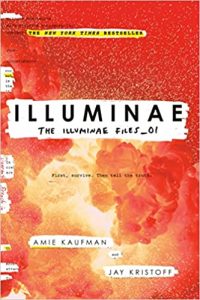 I’m an author and sometimes read fiction to learn from my brothers and sisters in lyric arms.
I’m an author and sometimes read fiction to learn from my brothers and sisters in lyric arms.
I chose to read Illuminae because I heard of its unique narrative frame. A narrative frame – not to be confused with POV – determines the perspective from which a story is told → why, to whom, and when. For example, a narrative frame could be an interview or an interrogation. Epistolary novels and fictional diaries are narrative frames.
Persons can be narrative frames too, for example, Dr. Watson in The Adventures of Sherlock Holmes. In such cases, the narrative frame and POV overlap.
In the case of Illuminae, the narrative frame is a file that consists of a set of classified documents, including reports, emails, videos, and interviews – making Illuminae something like a multimedia epistolary novel. Well, not sure one can call it a novel, since it has no classical narrative apart from the narration of surveillance videos.
Due to the narrative frame, Illuminae has no protagonist, and readers have no one to root for. Like in the case of movies, Illuminae conjures no empathy, and readers need to be content with sympathy and antipathy.
Illuminae’s experimental narrative frame pushes the boundaries of storytelling and I hope to see more of that kind of narrative action in the future.